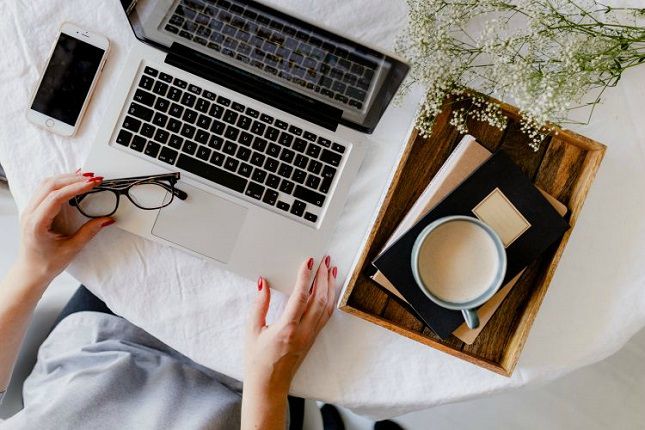Main problem identified with studying at home:
There is the lack of separation between school and home as the work space is different. The grey line blurs between personal and work space, hence making it difficult for some to study and have discipline at home for school/work.
Regular routine
Typically, when we go to school, there is a distinct separation of events that allow us to enter different mind states to accomplish different tasks.
- The journey to school prepares our minds for school
- The act of heading into the classroom and preparing for the lesson also prepares our minds
- The environment of learning helps to stimulate discussion and collaboration for work
- There is a supervised adult that is in charge and holding us accountable in school
This changes with the current situation
- High reliance on getting out of bed 5 minutes before the lecture begins. This means that students would go from a state of relaxation to work in a manner of 5 minutes, rather than the estimated 1-hour journey to school each time. Attending the lecture, but nothing seems to be going in… sounds familiar? In such a short amount of time, our mind is not yet accustomed to adapt to the work mindset. Though physically we may be in the call, all that we might be thinking about is going back to bed.
- There is lack of physical separation between the two attitudes (i) work (ii) play. The physical space is shared in your household: the table that is used to do work, you eat on it, you watch youtube on it, etc. By doing so, we no longer associate the act of sitting on the desk with work. It is mixed with other recreational activities that we do on the same table, in the same space. This results in us failing to enter the focused zone of studying as we are unable to get out of the ‘fun’ mindset.
- Difficult accountability checks from others. There is a lack of the physical presence of teammates or teachers to hold you accountable for assignments and work to be done. There are no checks to make sure that you are going through every lecture, or paying attention during the lecture. Unlike physical classes and lectures, there are lesser obvious avenues for you to clarify your doubts immediately (going to the front after lessons to clarify your doubt) – so you would need to take ownership and book a consultation through online means.
Some tips to deal with this issue
- Try to maintain a routine that resembles your typical school routine.
Wake up at a fixed time and prepare as if heading to school (try to plan this out in advance). For example, if you need to wake up at 6am on a regular school day, try to wake up at 6am. Follow through with the normal routine that you would do, for example: taking a shower, changing out of your sleepwear and having a hearty breakfast in the morning. You should also try to take lunch and dinner breaks at the appropriate timings, much like you would at school!
- Separate the day out with the lessons that you have.
Use lesson to break up the day into different chunks, like a personal timetable that you can follow throughout the day. These are some things that you can add into the timetable, in addition to the regular modules that you might have:
- Incorporate elements of self study where you are dedicated to work
- Incorporate elements of break time where you strictly stop work and focus on a break
- This clear distinction gives our brain much needed time to adjust to the activity that we are doing.
- Eliminate distractions, like when you are in lessons during school.
For example, you should not use other gadgets that are not used for class. Cough, like that phone that you use for Tik Tok and Instagram scrolling? Yeah, it should be kept away. Place the device in places that are 1) out of reach 2) out of sight -> this results in it being out of mind.
- Try to find a conducive space to study
Stay away from distractions from other family members. This means that you should try to find a corner that you can dedicate as your workspace to study. Move away from spaces that you use for relaxation – for example, your bedroom. With a clear distinction between physical spaces, this allows your brain to do the same as well for work and relaxation. For it to be an added conducive space, try to eliminate distractions that may be present on the table – for example, your phone, video game controllers, books.
- Replicate a similar study environment
Think about where you often study. It could be an empty classroom, the library or even at cafes. These environments can easily be replicated to allow a similar environment that can stimulate motivation to studying. For example, Study with me videos gives students a similar platform to study together – all for one, and one for all! Listed below are some YouTube links that you can check out:
- Kharmamedic: https://youtu.be/fJP7c8xt1n4 (10 hour no music)
- Ali Abdaal: https://youtu.be/fKNiV9UHPPo (3.5 hour with music)
- Merve: https://www.youtube.com/c/MerveStudyCorner/videos (specific study with me channel)
- Cafe sound player: https://coffitivity.com/ (Real world sound players – cafe noises, nature, etc.)
- Group study session with friends
You can also make use of the web class app that your school uses. These include Zoom, MS Teams, Google classrooms etc. By using these, you can study with your friends and provide accountability to each other.
At the end of it all, do remember to take breaks as well! Working and studying from home gives you the flexibility of working into the wee hours of the night, and sometimes you would forget to take breaks. Breaks are important to give your body (especially your eyes and brain) sufficient rest before you tackle challenges the next day.

